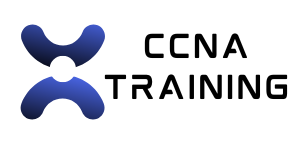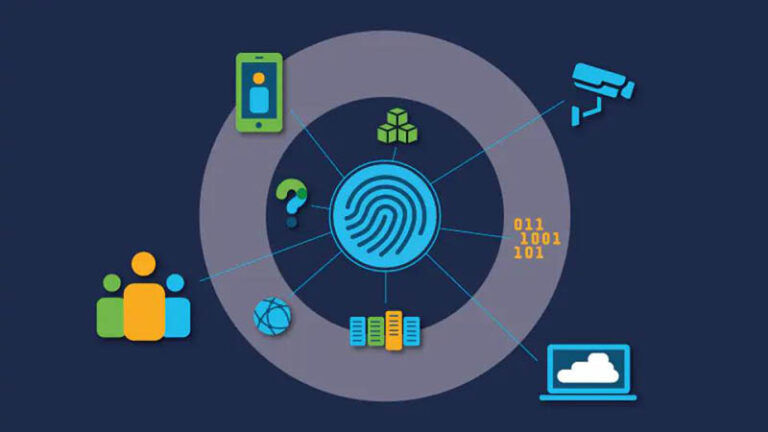Cisco Certified Network Associate (CCNA) certification is a widely recognized credential in the IT industry. It is an entry-level certification that validates the skills and knowledge required to install, operate, and troubleshoot small to medium-sized enterprise branch network. The CCNA certification covers a wide range of networking topics, including routing and switching, security, wireless networking, and more. It is a valuable certification for individuals looking to start a career in networking or for those who want to advance their existing networking career.
The CCNA certification is offered by Cisco, a global leader in networking technology. Cisco’s networking solutions are used by organizations of all sizes around the world, making the CCNA certification highly sought after by employers. Whether you are just starting out in the IT industry or looking to advance your career, obtaining the CCNA certification can open up new opportunities and help you stand out in a competitive job market.
Key Takeaways
- Cisco CCNA Certification is a valuable credential for IT professionals looking to advance their careers in networking.
- Benefits of Cisco CCNA Certification include increased job opportunities, higher earning potential, and enhanced networking knowledge and skills.
- Career opportunities with Cisco CCNA Certification include roles such as network administrator, network engineer, and IT support specialist.
- To prepare for the Cisco CCNA Certification exam, candidates should study the exam topics, practice with hands-on labs, and use study resources such as books and online courses.
- Tips for success in obtaining Cisco CCNA Certification include setting a study schedule, seeking help from study groups or forums, and taking practice exams to gauge readiness.
- Continuing education and advancement with Cisco CCNA Certification can lead to higher-level Cisco certifications and career growth opportunities.
- In conclusion, obtaining Cisco CCNA Certification can unlock potential for career advancement and professional growth in the field of networking.
Benefits of Cisco CCNA Certification
There are numerous benefits to obtaining the Cisco CCNA certification. Firstly, it demonstrates your commitment to advancing your skills and knowledge in the field of networking. Employers value candidates who are willing to invest in their professional development, and holding a CCNA certification can make you a more attractive candidate for networking positions.
Secondly, the CCNA certification can lead to increased job opportunities and higher earning potential. According to PayScale, individuals with a CCNA certification can earn significantly higher salaries than their non-certified counterparts. Additionally, many employers specifically look for candidates with CCNA certification when hiring for networking positions, so holding this credential can open doors to new career opportunities.
Furthermore, the CCNA certification provides a solid foundation in networking principles and technologies. This knowledge is valuable not only for networking professionals, but also for IT professionals in other roles who need to understand networking concepts as part of their job responsibilities. Whether you are a network engineer, system administrator, or IT manager, the skills and knowledge gained through CCNA certification can benefit you in your current role and future career advancement.
Career Opportunities with Cisco CCNA Certification
Earning the Cisco CCNA certification can lead to a variety of career opportunities in the IT industry. With this credential, you may qualify for positions such as network administrator, network engineer, systems administrator, or technical support specialist. These roles are essential in organizations of all sizes and across various industries, so holding a CCNA certification can open up a wide range of job opportunities.
In addition to traditional networking roles, the CCNA certification can also be beneficial for individuals pursuing careers in cybersecurity, cloud computing, and wireless networking. The knowledge and skills gained through CCNA certification provide a strong foundation for these specialized areas of IT, making it a versatile credential for professionals with diverse career interests.
Furthermore, holding a CCNA certification can lead to opportunities for career advancement. With this credential, you may be eligible for higher-level networking positions, such as network architect or network manager. Additionally, the CCNA certification can serve as a stepping stone to more advanced Cisco certifications, such as the Cisco Certified Network Professional (CCNP) or Cisco Certified Internetwork Expert (CCIE) certifications, which can further enhance your career prospects.
How to Prepare for the Cisco CCNA Certification Exam
| Study Material | Practice | Time Commitment |
|---|---|---|
| Cisco Official Cert Guide | Practice exams and labs | At least 3 months |
| Video Tutorials | Packet Tracer simulations | 1-2 hours daily |
| Online Forums and Communities | Hands-on configuration | Regular study schedule |
Preparing for the Cisco CCNA certification exam requires dedication and a structured study plan. The exam covers a wide range of networking topics, so it is important to approach your preparation methodically and thoroughly. One of the best ways to prepare for the exam is to take advantage of the resources offered by Cisco, such as official study guides, practice exams, and training courses. These resources are designed specifically to help candidates prepare for the CCNA exam and are an invaluable tool in your preparation process.
In addition to official Cisco resources, there are many third-party study materials available, including books, online courses, and practice tests. These resources can provide additional perspective and help reinforce your understanding of the exam topics. It is important to choose study materials from reputable sources and ensure that they align with the current exam objectives.
Another important aspect of preparing for the CCNA exam is hands-on practice. Setting up a home lab or using virtual lab environments can help you gain practical experience with networking technologies and configurations. This hands-on practice is essential for reinforcing your understanding of networking concepts and preparing you for real-world scenarios that may be covered on the exam.
Tips for Success in Obtaining Cisco CCNA Certification
Successfully obtaining the Cisco CCNA certification requires careful planning and diligent study. Here are some tips to help you prepare effectively and increase your chances of success:
1. Create a study plan: Establish a study schedule that allows you to cover all exam topics thoroughly before your exam date. Set aside dedicated time each day or week for studying and stick to your plan.
2. Use multiple study resources: Take advantage of a variety of study materials, including official Cisco resources, third-party books and courses, and hands-on practice labs. This will give you a well-rounded understanding of the exam topics.
3. Practice regularly: Regular hands-on practice with networking technologies is essential for reinforcing your understanding of the exam objectives and preparing you for real-world scenarios.
4. Take practice exams: Practice exams can help you assess your readiness for the actual exam and identify areas where you need further study.
5. Join study groups: Connecting with other individuals preparing for the CCNA exam can provide valuable support and resources. Consider joining online forums or local study groups to share knowledge and study tips.
By following these tips and staying focused on your study goals, you can increase your chances of success in obtaining the CCNA certification.
Continuing Education and Advancement with Cisco CCNA Certification

After obtaining the Cisco CCNA certification, it is important to continue learning and advancing your skills in the field of networking. Cisco offers a variety of advanced certifications that build upon the foundation provided by the CCNA certification. For example, the Cisco Certified Network Professional (CCNP) certification covers more advanced networking topics and can lead to higher-level networking positions.
In addition to pursuing advanced certifications, continuing education through ongoing training and professional development is essential for staying current with evolving networking technologies. Cisco offers a range of training courses and resources that can help you stay up-to-date with the latest advancements in networking.
Furthermore, gaining practical experience through on-the-job opportunities or volunteer projects can help you apply your skills in real-world scenarios and demonstrate your expertise to potential employers. Networking with professionals in the field and staying active in industry communities can also provide valuable insights and opportunities for career advancement.
Overall, obtaining the CCNA certification is just the beginning of your journey in the field of networking. By continuing to learn and grow your skills, you can unlock new opportunities for career advancement and make a meaningful impact in the IT industry.
Unlocking Your Potential with Cisco CCNA Certification
In conclusion, obtaining the Cisco CCNA certification can be a significant step towards advancing your career in the IT industry. The benefits of holding this credential are numerous, including increased job opportunities, higher earning potential, and a solid foundation in networking principles and technologies. With careful preparation and dedication to ongoing learning, you can successfully obtain the CCNA certification and open up new possibilities for career advancement.
Whether you are just starting out in networking or looking to take your career to the next level, the CCNA certification can provide valuable skills and knowledge that are highly sought after by employers. By following a structured study plan, leveraging multiple study resources, and gaining practical experience through hands-on practice, you can increase your chances of success in obtaining this valuable credential.
Furthermore, continuing education and advancement opportunities with Cisco’s advanced certifications and ongoing training can help you stay current with evolving networking technologies and unlock new possibilities for career growth. By staying committed to your professional development and seizing opportunities for hands-on experience and industry engagement, you can maximize the potential of your CCNA certification and make a meaningful impact in the IT industry.
FAQs
What is Cisco CCNA certification?
Cisco CCNA (Cisco Certified Network Associate) certification is a widely recognized certification for IT professionals who are interested in networking and want to validate their skills in installing, configuring, operating, and troubleshooting medium-sized routed and switched networks.
What are the prerequisites for the CCNA certification?
There are no formal prerequisites for taking the CCNA exam, but it is recommended that candidates have a good understanding of networking fundamentals and basic IP addressing.
What topics are covered in the CCNA exam?
The CCNA exam covers a wide range of topics including network fundamentals, network access, IP connectivity, IP services, security fundamentals, and automation and programmability.
How long is the CCNA certification valid for?
The CCNA certification is valid for three years. After three years, candidates can recertify by passing the current CCNA exam or any of the higher-level Cisco certification exams.
What are the career opportunities for CCNA certified professionals?
CCNA certified professionals can pursue careers as network administrators, network engineers, or systems administrators. The certification can also open doors to higher-level Cisco certifications and advanced networking roles.
















